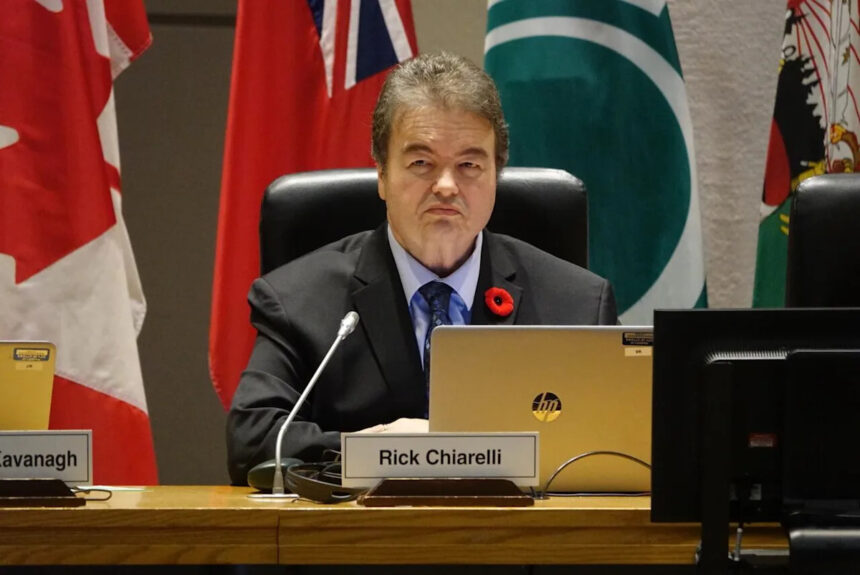Article – The wife of embattled Ottawa city councillor Rick Chiarelli made an impassioned defense of her husband at a recent provincial legislative committee hearing, framing him as a victim of “cancel culture” amid ongoing controversy over his conduct in office.
Lida Chiarelli appeared before the Ontario Legislature’s Standing Committee on Heritage, Infrastructure and Cultural Policy last Thursday during hearings on Bill 9, the “Strong Mayors, Building Homes Act.” She used her allotted time to criticize what she described as unfair treatment of her husband by Ottawa’s integrity commissioner and city council.
“My husband has been a victim of cancel culture,” Lida Chiarelli told committee members. She claimed the integrity commissioner’s investigations lacked due process and proper evidence gathering, suggesting her husband was judged without adequate opportunity to defend himself.
The controversy surrounding Councillor Chiarelli began in 2019 when multiple women came forward with allegations of inappropriate behavior and sexual harassment. Following investigations, Ottawa’s integrity commissioner Robert Marleau released reports substantiating many of these claims, leading city council to impose the maximum penalties available, including suspension of 450 days’ pay.
According to testimony from former staffers documented in the integrity commissioner’s reports, Chiarelli allegedly asked job candidates inappropriate questions about going braless to events and wearing revealing clothing. The reports also detailed claims he pressured staffers to meet with men at bars to gather information.
Throughout the proceedings, Councillor Chiarelli has denied all allegations and maintained he was unable to participate fully in the investigation process due to health issues. He underwent open-heart surgery in December 2019, a fact his wife emphasized during her committee appearance.
Legal experts note the unique challenges of municipal integrity investigations. Michael Pal, Associate Professor at University of Ottawa’s Faculty of Law, explained in an interview with CBC last year that “municipal integrity commissioners operate under different evidentiary standards than courts, focusing on ethical standards rather than criminal standards of proof.”
At the Bill 9 hearing, several committee members appeared uncomfortable with Lida Chiarelli’s testimony, as the subject matter diverted substantially from the bill’s focus on expanding mayoral powers in certain Ontario municipalities. MPP Laura Smith attempted to redirect the discussion toward the legislation under consideration.
When asked afterward why she chose this forum to defend her husband, Lida Chiarelli told reporters, “I needed people to hear our side. The damage to our family has been enormous.”
Community reaction to her testimony has been mixed. The Ottawa Coalition for Accountability praised the original integrity commissioner’s investigation in a statement issued Monday, calling it “thorough and fair.” Meanwhile, Rick Chiarelli continues to serve as councillor for College Ward, though with diminished responsibilities after council voted to limit his committee assignments.
Despite the controversy, Chiarelli has resisted calls for his resignation. Municipal governance experts point out that Ontario’s Municipal Act provides no mechanism for removing elected officials from office based on integrity commissioner findings, leaving voters as the ultimate arbiters at election time.
The testimony has renewed debate about accountability mechanisms for municipal politicians. Emmett Macfarlane, political scientist at the University of Waterloo, notes that “the tension between democratic accountability and workplace standards presents unique challenges in the municipal context where officials work closely with staff they directly hire.”
As the province considers changes to municipal governance through Bill 9, this incident highlights ongoing questions about oversight, accountability, and the adequacy of current mechanisms to address workplace misconduct allegations against elected officials.






